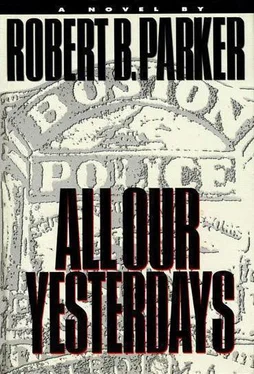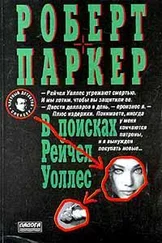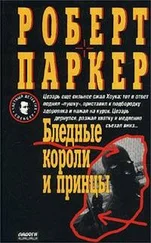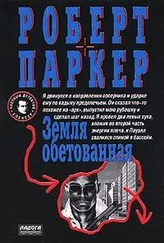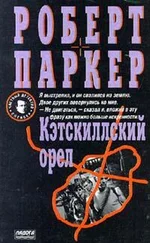Later, in the Green, among some bushes, squirming beneath him in the darkness, moaning in his arms, she bit his shoulder and drew blood. And when it was over they stayed where they were, in silence, catching their breath, smelling the crushed grass beneath them and the damp smell of the Irish earth, and listening to the sound of the heavy lorries as they rolled by.
They met on a cold night, in a high-ceilinged room, on the first floor of a four-story pinkish brick town house, in back of Trinity College, just up Westland Row from the train station. Mulcahy himself was there, the chief of staff, and Mick Collins, “the Big Fella” head of intelligence, seated behind a long table with maps and papers on it. The high windows were shuttered from the inside, and the doors were locked. The radiators were full on in the crowded room, and Ginger O’Connell, the training officer, portly and red faced, behind the table, was sweating in the heat. Rory O’Connor and Arthur Griffith made five command staff members behind the long table. Conn sat against the back wall on a straight chair that had been moved in from the kitchen. If the peelers came fishing today they’d get a lot of big ones , Conn thought.
“Let us be straight about this,” Collins said. “Their Secret Service has been better than ours.”
He spoke firmly, as he did everything. He wasn’t in fact such a big fella. Conn was taller. But he was blocky and athletic, and the certainty with which he said things made him seem bigger than he was.
“We need to slow it down until we can catch up. No one outside this room knows of our plans. There are few of us, each of you will have to act alone. It is the best way to keep it secret.”
Besides the command staff there were twenty men in the reeking hot room. Collins looked around slowly, making eye contact with each of them. Conn felt the force in the Big Fella’s gaze when his turn came.
“We’ve all fought, we all know that it’s harder alone. Harder to act with resolve. It is why each of you was asked to volunteer. You are the best we have.”
Conn knew this was so and he was proud to be there. Still, it was one thing to fire at an anonymous enemy in the midst of a firefight. It was another to assassinate a man with a name, in his home, perhaps in his bed, sleeping with his wife... He wondered if Hadley slept with her husband. He had seen him once, on the street with Hadley, walking on the west side of Merrion Square near Leinster House. A solid man, in his forties, with dark brown hair and a short thick beard like Grant, the American Civil War general. Hadley had made no sign as they passed, her hand resting lightly on her husband’s crooked arm. He had a pleasant face with a look of intelligence about it. There was about him what Conn thought of as the American look, as if he always slept soundly and dined well, and spent time out of doors. Conn felt something nearly like camaraderie with this man who did not know him. They had shared the same woman, felt the secrets of her body. He imagined bursting in upon them, revolver drawn, and Hadley’s husband startled sitting up in the bed beside her... Of course they slept together.
“It is important that it all happen at the same time,” Mulcahy said. “I want everyone in Ireland to be talking about it on the way to Mass tomorrow. Not only will we cripple their intelligence with this single simultaneous stroke, but it will be a statement, also, of how seriously a free Ireland must be taken.”
Mulcahy’s thick blond moustache was in odd juxtaposition, Conn thought, to his dark hair. It made him look a bit silly. But he wasn’t silly. Dickie was a good man. So was Mick. All of them were in this dark inherited brotherhood of idealism and savagery. All of them loved Ireland and hated England and loved each other. And he among them hated and loved as they did, though he loved Hadley Winslow more.
The wallpaper in the room had a design of Doric columns in pink and white. The ceiling molding was thickly ornamental. The radiators hissed and pinged with heat. There was no sound from the street. It is an emblem , Conn thought, of the essential Irish soul: hot, secretive, and dangerous, sealed up with history . Conn smiled to himself. And about to do some damage .
Collins took out a big gold pocket watch and studied it for a theatrical moment.
“Eleven o’clock. Time — if you’re going to reach your target before the curfew,” he said. “Wait till it’s after midnight, Sunday morning. And then be quick. It needs to be finished by sunrise.”
The men stirred. Each of them had a handgun, most had two. There were perhaps a dozen hand grenades in the room as well. Some of the men carried knives. Conn didn’t carry one. Sticking a knife into a man was a bit much, he thought.
Outside, the cold darkness was a brief refreshment from the steam ridden meeting room, But soon the chill became unpleasant and Conn buttoned his overcoat around his neck and turned up the collar. His target was a British Secret Service man named John Cooper, who lived on Haddington Road near the Beggar’s Bush army barracks. Collins’s intelligence report said he lived in one side of a two-story house with his wife. There were no children. There was no dog. Cooper would be the only man in the house. He was described as thirty-five, balding, medium height, medium weight. Nothing unusual to identify him. A nondescript government functionary who had gone to bed peacefully and would die before morning.
In the still darkness Conn walked along Mount Street, among the endlessly similar four-story eighteenth-century brick buildings. The sky was clear black and the stars were bright. The moon was only a sliver above him and the stillness of the low city with its orderly streets and symmetrical green parks seemed penetrating. The streets were empty, and his footfall was loud and rhythmic as he walked. He liked the sound. The weight of his guns was comfortable under his coat. When he first began to wear them they seemed heavy, but now they were part of him, no more uncomfortable than his shirt. A steel-plated Lancia went by with a guttural purr. It slowed as it passed Conn, but it did not stop, and soon it picked up speed and drove on, ugly and implacable like an ancient nocturnal carnivore. If they stopped him he’d make a fight of it. He might be able to lose them in the back gardens of the neighborhood, and even if he couldn’t he would rather go down like a soldier of the IRA, which he was, with his guns in his hands. He smiled as he walked, liking the image of himself, two-gun Sheridan, and smiling at his own boyish heroism, though he was proud of it too, and he knew it to be real.
At Haddington Road he stopped half a block east of Beggar’s Bush before the two-story row house with a red door. He was on his own. There had been no instructions. How he killed this man was up to him. He didn’t like it much, but he’d do it. He’d sworn an oath to a free Ireland, and this balding youngish man he was about to kill had chosen to be a Secret Service officer, had chosen to repress the Irish people, had chosen to run the risk that he was about to incur. Certainly this man had sent over many a good-hearted Irish lad.
Conn took the big Webley out, and cocked it, and held it by his side. He walked briskly across the street and up the front steps and rapped loudly on the front door. After a moment he rapped again. There was movement inside the house. The front door opened a crack and a voice said, “Who is it?”
“From the Castle.”
The door opened wider.
“What the hell are you doing at this hour?”
“John Cooper?” Conn said.
“Aye.”
Conn raised the gun and shot him point blank in the middle of the chest, and again. Cooper’s mouth opened but he was dead before the sound got there and he fell backwards into his front hall. Conn put the gun back and turned briskly and walked back down the stairs. Behind him he heard a woman scream, “John, dear God, they’ve killed you.” And then he was around the corner and onto Shelbourne Road walking fast in the still night.
Читать дальше
